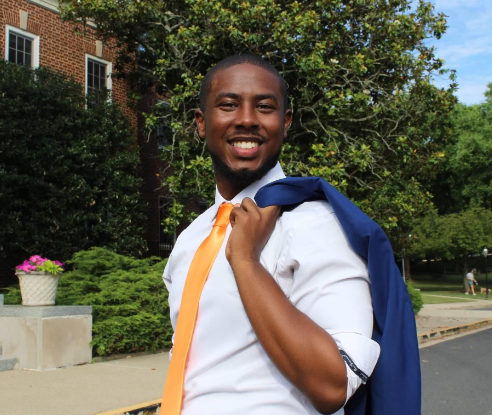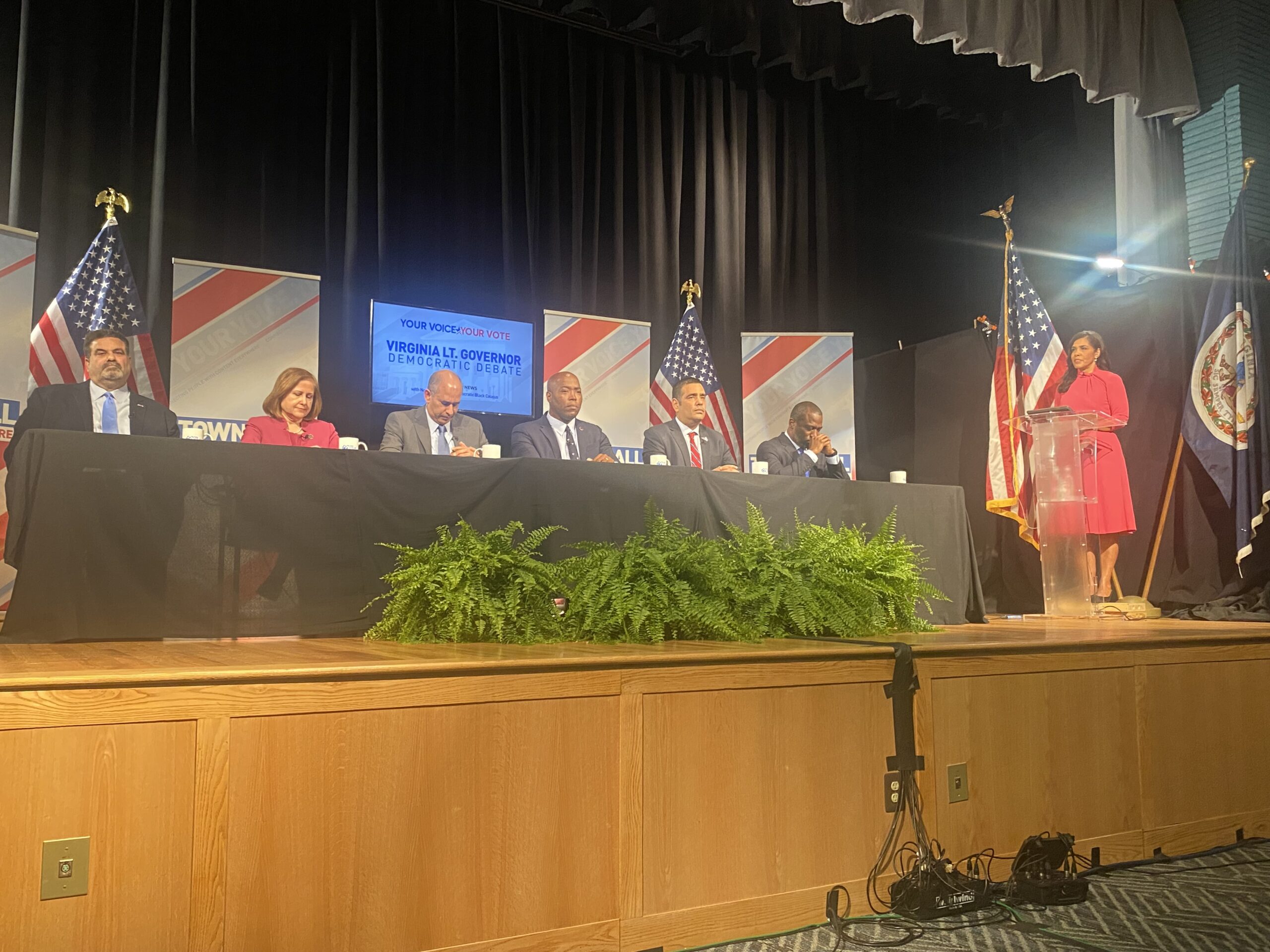Anthony Amos: A Conversation on Community Leadership and Engagement
by Zayd Hamid
The Fairfax City Council candidate discusses higher education community partnerships, representation and inspiration for young leaders of color, and the unique qualities of Generation Z leadership.
A recent graduate of George Mason University – Schar School of Policy and Government’s Master of Public Policy program, Anthony Amos spoke with the PW Perspective’s Zayd Hamid about the impact of their shared alma mater on his professional journey and other aspects of his community leadership story.
Amos is passionate about local government and the opportunities in that space for young professionals. “At the local level, there are a lot where you could get involved quickly. For example, my current job with Fairfax County is a land use aide. I knew nothing about land use going into the job. On the outside, that would look complicated, especially to someone coming out of high school or fresh out of their bachelor’s program,” said Amos. He believes that getting local officials like county supervisors inside classrooms to speak with students can help open pipelines between public education and public sector careers.
Amos leads by example in that, having received the Jack Wood Award for Town-Gown Relations because of his leadership in strengthening relationships between the City of Fairfax and George Mason University. The university’s Office of Government and Community Relations wrote highly of his community involvement by asserting that “his extensive volunteerism with registered student organizations, like Bridge at Mason, and community organizations, like the League of Women Voters, highlights his love for public service and connection.” His recognition from the George Mason University community was further demonstrated by sizable attendance from students, faculty, and staff at his campaign launch.
“I owe all of this to Mason. Pursuing your education further down the line to a master’s and even PhD level gives you a sense of legitimacy and expertise. When I decided to run for office, I already had a list of talking points ready to go. A lot of that came from papers I already worked on. I took Siona Listokin’s course on public budgeting and we did a debate on stadium financing – it was phenomenal. Debating about the car tax, about how local governments balance budgets, etc., translated into how we (Fairfax) approach items like the meals tax and the sales tax.” His graduate coursework and background in local government land use help Amos demonstrate his adeptness with local government policy to the Fairfax community.
Amos constantly seeks opportunities to apply his learning from the Schar School and his overall relationship with his alma mater to develop new community service programs for Fairfax. “I would love to talk to the Mason Enterprise Center, which is a flagship program created by the city’s Economic Development Authority, and is a partnership between the city, the FCED, and the university. We constantly work with MEC-Fairfax staff to develop programming and strategic initiatives to market and bolster the space’s operations.” With the right support and resources from the city and university, Amos feels that minority-owned and immigrant-owned businesses will be empowered to succeed in the local community.
Minority and immigrant business owners meaningfully inspire students from those communities who dream of becoming entrepreneurs. Amos recognizes that as the power of representation. Concurrently, he acknowledges that Fairfax has never had a Black councilperson before despite formerly having a population that was nearly a third Black. “You want to motivate people and you want that representative voice, and of course, you want good people and to look up to someone. I’m hoping that more youth will be engaged in public service when they see more people like them running and getting involved in office.”
He credits Martin Luther King Jr., James Baldwin, Fred Hampton, Barack Obama, and his parents as examples of African American leadership whom he’s emulated aspects of community leadership from. “I will always remember the ‘Yes We Can’ speech from Barack Obama. I will always remember the ‘I Have A Dream’ speech from Martin Luther King Jr. I will always remember reading ‘Giovanni’s Room’ by James Baldwin. There are so many leaders who have done amazing things in such a relatively short time. I want to carry on their legacy and help as many people as I can.”
He also mentioned Laszlo Palko, the former city manager of Manassas Park who has since become the city manager of Fairfax, as another inspiration for him in local government leadership. “If I’m elected, he and I are going to do some incredible work together. He’s a phenomenal person. He took over Manassas Park when it was struggling post-recession and managed to get it to make a complete comeback. He comes from a military background and he approaches problems with that mindset of ‘we’re all going to talk about it, let’s do some cost-benefit analysis, and let’s get as many people engaged as possible.’” Amos admires Palko’s worldview on community engagement and looks forward to working with him as a city councilperson.
Finally, like many members of Gen Z, Amos is inspired by leaders in contemporary fiction. “Some people have asked me why I chose orange as my campaign color. The honest answer is Naruto. I grew up on Naruto and he was always a leader I wanted to be like.” Breaking from traditional campaign branding norms, Amos uses unorthodox colors derived from inspiration. Unorthodox, innovative thinking is a hallmark of his generation as seen by Amos and others like Heman Bekele, a 14-year-old Fairfax student scientist that Amos is inspired by. Bekele was recently recognized as TIME’s Kid of the Year for creating a soap that may possess treatment properties for skin cancer. Amos is determined to bring generational innovation like that to local government.
“This generation is not afraid to be geeky and have fun with it. I think we need that in leadership today because right now government and politics are far too exclusionary not just by ageism but racism. Also, people feel guarded about what they truly care about. How do we branch out and get people more engaged? It’s young people getting involved and bringing new ideas. You need leaders who are willing to disrupt some things and try new ideas out.”
(Zayd Hamid is the 2023 Student Advocate of the Year, member of the National Institute of Lobbying and Ethics, member of the National Society for Leadership and Success, and a current Master of Public Policy student at George Mason University. Find out more about his resume services by visiting his LinkedIn page.)



